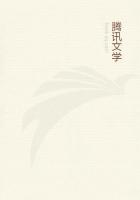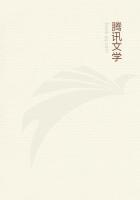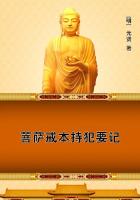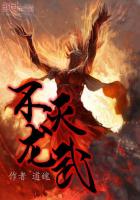1
'BEGINNING' means (1) that part of a thing from which one would start first, e.g a line or a road has a beginning in either of the contrary directions. (2) That from which each thing would best be originated, e.g. even in learning we must sometimes begin not from the first point and the beginning of the subject, but from the point from which we should learn most easily. (4) That from which, as an immanent part, a thing first comes to be, e,g, as the keel of a ship and the foundation of a house, while in animals some suppose the heart, others the brain, others some other part, to be of this nature.
(4) That from which, not as an immanent part, a thing first comes to be, and from which the movement or the change naturally first begins, as a child comes from its father and its mother, and a fight from abusive language. (5) That at whose will that which is moved is moved and that which changes changes, e.g. the magistracies in cities, and oligarchies and monarchies and tyrannies, are called arhchai, and so are the arts, and of these especially the architectonic arts.
(6) That from which a thing can first be known,-this also is called the beginning of the thing, e.g. the hypotheses are the beginnings of demonstrations. (Causes are spoken of in an equal number of senses;for all causes are beginnings.) It is common, then, to all beginnings to be the first point from which a thing either is or comes to be or is known; but of these some are immanent in the thing and others are outside. Hence the nature of a thing is a beginning, and so is the element of a thing, and thought and will, and essence, and the final cause-for the good and the beautiful are the beginning both of the knowledge and of the movement of many things.
2
'Cause' means (1) that from which, as immanent material, a thing comes into being, e.g. the bronze is the cause of the statue and the silver of the saucer, and so are the classes which include these.
(2) The form or pattern, i.e. the definition of the essence, and the classes which include this (e.g. the ratio 2:1 and number in general are causes of the octave), and the parts included in the definition.
(3) That from which the change or the resting from change first begins; e.g. the adviser is a cause of the action, and the father a cause of the child, and in general the maker a cause of the thing made and the change-producing of the changing. (4) The end, i.e. that for the sake of which a thing is; e.g. health is the cause of walking. For 'Why does one walk?' we say; 'that one may be healthy'; and in speaking thus we think we have given the cause. The same is true of all the means that intervene before the end, when something else has put the process in motion, as e.g. thinning or purging or drugs or instruments intervene before health is reached; for all these are for the sake of the end, though they differ from one another in that some are instruments and others are actions.
These, then, are practically all the senses in which causes are spoken of, and as they are spoken of in several senses it follows both that there are several causes of the same thing, and in no accidental sense (e.g. both the art of sculpture and the bronze are causes of the statue not in respect of anything else but qua statue;not, however, in the same way, but the one as matter and the other as source of the movement), and that things can be causes of one another (e.g. exercise of good condition, and the latter of exercise; not, however, in the same way, but the one as end and the other as source of movement).-Again, the same thing is the cause of contraries; for that which when present causes a particular thing, we sometimes charge, when absent, with the contrary, e.g. we impute the shipwreck to the absence of the steersman, whose presence was the cause of safety; and both-the presence and the privation-are causes as sources of movement.
All the causes now mentioned fall under four senses which are the most obvious. For the letters are the cause of syllables, and the material is the cause of manufactured things, and fire and earth and all such things are the causes of bodies, and the parts are causes of the whole, and the hypotheses are causes of the conclusion, in the sense that they are that out of which these respectively are made;but of these some are cause as the substratum (e.g. the parts), others as the essence (the whole, the synthesis, and the form). The semen, the physician, the adviser, and in general the agent, are all sources of change or of rest. The remainder are causes as the end and the good of the other things; for that for the sake of which other things are tends to be the best and the end of the other things; let us take it as making no difference whether we call it good or apparent good.
These, then, are the causes, and this is the number of their kinds, but the varieties of causes are many in number, though when summarized these also are comparatively few. Causes are spoken of in many senses, and even of those which are of the same kind some are causes in a prior and others in a posterior sense, e.g. both 'the physician' and 'the professional man' are causes of health, and both 'the ratio 2:1' and 'number' are causes of the octave, and the classes that include any particular cause are always causes of the particular effect. Again, there are accidental causes and the classes which include these; e.g. while in one sense 'the sculptor'
causes the statue, in another sense 'Polyclitus' causes it, because the sculptor happens to be Polyclitus; and the classes that include the accidental cause are also causes, e.g. 'man'-or in general 'animal'-is the cause of the statue, because Polyclitus is a man, and man is an animal. Of accidental causes also some are more remote or nearer than others, as, for instance, if 'the white' and 'the musical' were called causes of the statue, and not only 'Polyclitus'













